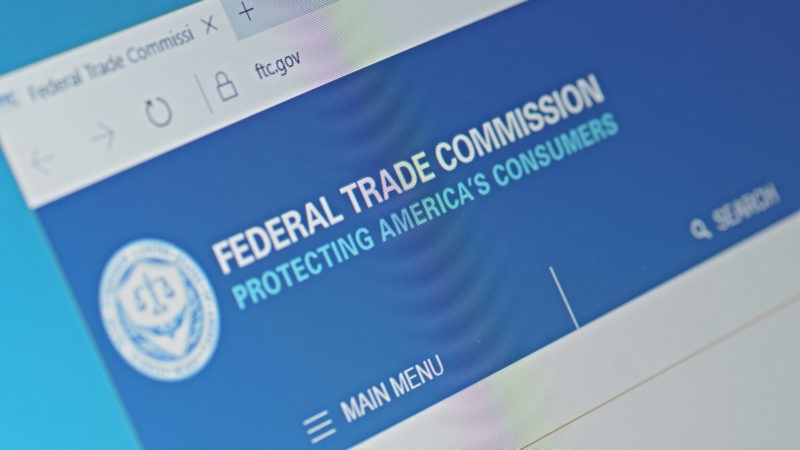The FTC wants to clean up fake reviews and fabricated social media followers. Let’s hope it’s got a big bucket.

The U.S. Federal Trade Commission (FTC) ban on fake and AI-generated customer reviews takes effect on Oct. 13, 2024. The final rule, which was announced in August, goes beyond a prohibition on fake product reviews. It also prohibits the buying and selling of followers and views on social media.
The rule was in the works for nearly two years. The effort started with an “advanced notice of potential rule making” in November 2022. It then traveled through the bureaucracy, including public comments in February 2024, before eventually becoming a final rule.
“Fake reviews not only waste people’s time and money, but also pollute the marketplace and divert business away from honest competitors,” said FTC Chair Lina M. Khan in a statement announcing the final rule. “By strengthening the FTC’s toolkit to fight deceptive advertising, the final rule will protect Americans from getting cheated, put businesses that unlawfully game the system on notice, and promote markets that are fair, honest, and competitive.”
1. People rely on online reviews to make informed purchases and compare products.
When companies use fake reviews, consumers get misled and honest businesses lose out.
Today @FTC finalized a rule to prohibit fake reviews. https://t.co/llOOBvPRHY
— Lina Khan (@linakhanFTC) August 14, 2024
Once the rule takes effect, the FTC will have the ability to pursue civil penalties against those who fail to comply. The FTC’s previous efforts to combat fake reviews on a case-by-case basis was stymied by a lack of penalties and enforceable rules, the commission said in a statement.
What does the FTC rule for online reviews prohibit?
Fake or false consumer reviews, consumer testimonials and celebrity testimonials
The rule bans testimonials that claim to be made by someone who does not exist. This part of the rule is targeting AI-generated fake reviews in particular. But it also includes:
- Reviews and testimonials by people who did not have actual experience with the business or its products or services.
- Reviews and testimonials that misrepresent the experience of the person giving it.
- A prohibition against businesses creating or selling such reviews or testimonials and buying such reviews, procuring them from company insiders or disseminating such testimonials when the business knew or should have known the reviews or testimonials were fake or false.
Buying positive or negative reviews
The FTC rule also takes aim at businesses that provide compensation or other incentives conditioned on writing consumer reviews. Businesses can encourage consumers to leave reviews, but they cannot tell them what to say. The actual language here is, “expressing a particular sentiment, either positive or negative.” The FTC rule also clarifies that the conditional nature of the offer of compensation or incentive may be expressly or implicitly conveyed.
Insider reviews and testimonials
In its rule, the FTC prohibits certain reviews and testimonials written by company insiders that fail to clearly and conspicuously disclose the material connection to the business. It prohibits reviews and testimonials given by officers or managers of the company.
Businesses cannot disseminate testimonials the business should have known was created by an officer, manager, employee or agent of the company.
The rule even takes insider reviews a step further, by imposing requirements when officers or managers solicit consumer reviews from their own immediate family, or from employees or agents — or when they tell employees or agents to solicit reviews from their relatives.
Company-controlled review websites
Business cannot misrepresent a website or entity it controls that provides independent reviews or opinions about a category of products or services that includes its own products or services.
Review suppression
The FTC is aiming to protect consumers that leave negative online reviews from any backlash. Its new rule prohibits a business from using unfounded or groundless legal threats, physical threats, intimidation or certain false public accusations to prevent or remove a negative consumer review.
Businesses are also barred from misrepresenting the reviews on a review portion of its website. The business cannot say the review portion of its website represents all or most of the reviews submitted if reviews were suppressed due to their ratings or negative sentiment.
Misuse of fake social media indicators
The rule bans anyone from selling or buying fake indicators of social media influence, such as followers or views generated by a bot or hijacked accounts. This prohibition is limited to situations in which the buyer knew or should have known that the indicators were fake and misrepresent the buyer’s influence or importance for a commercial purpose.
Why we care: Online reviews and testimonials were one of the features that promised to democratize the internet. You could get the insights opinions directly from consumers. From consumer reviews on Amazon to B2B software review sites, buyers could gather opinions before making purchase decisions — until the system was inevitably gamed.
The FTC’s rule puts some teeth behind enforcement, but will, at best, make a very tiny dent in the problem. For one thing, the U.S. FTC only has jurisdiction in the United States, so the plethora of fake reviews flooding the internet from other countries is unlikely to slow, let alone stop, because of the new rule.
The post U.S. FTC ban on fake, AI-generated reviews takes effect Oct. 13 appeared first on MarTech.
(1)






